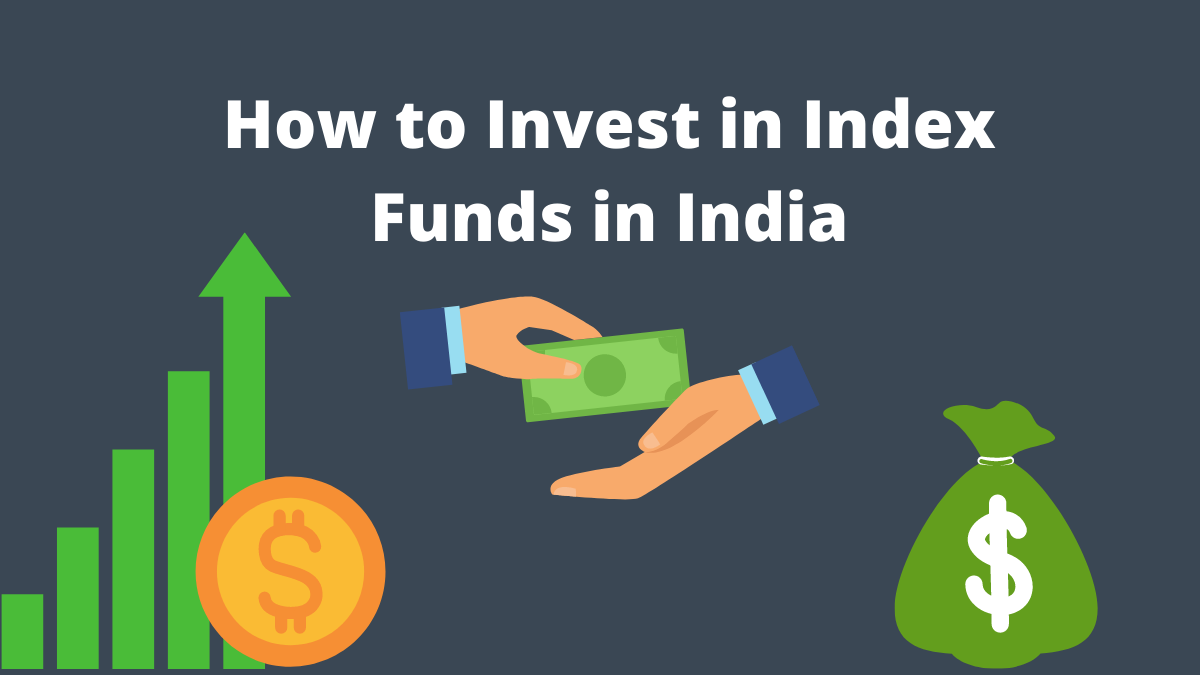What is an Index Fund
Many investors are aware of the benefits of diversifying their portfolios across the property. Index funds often catch their eye in the search as they look at investing in a broad market index of funds – like the Sensex or the Nifty. All stocks in these indices will get some representation in their investment portfolios. This is theoretically a performance index, similar to what is being detected. Its main feature is the low expense ratio.
Index funds are not actively managed funds, thus have lower costs. They do not aim to outperform the market, but rather to maintain uniformity. They help to balance your risk of investment management or investment portfolio.
Read Also- Top 5 Best Demat & Trading Account In India 2021
How do Index Funds Work
If an index fund tracks a benchmark like the Nifty, its portfolio will have 50 stocks that comprise the Nifty in the same ratio. An index is a group of securities defining a market segment. These securities can be bond market instruments or equity oriented instruments like shares. Some of the most popular indices in India are BSE SENSEX and NSE Nifty. Since index funds track a particular index, they fall under passive fund management. The fund manager decides which shares are to be bought and sold according to the structure of the underlying benchmark. Unlike actively managed funds, research analysts do not have a standalone team to identify opportunities and select stocks.
As an actively managed fund attempts to beat its benchmark, the role of an index fund is to match its performance to that of its index. They typically distribute benchmark returns more or less evenly. However, there may be a small difference between fund performance and index. This is known as a tracking error. The fund manager should work towards bringing down the tracking error as much as possible. In the case of a weighted index, the fund manager often stabilizes the percentage of securities to ensure they make their presence in the benchmark.
Who should Invest in Index Funds
The investment decision in a mutual fund solely depends upon your risk preferences and investment goals. Index funds are ideal for investors who are risk-averse and expect predictable returns. These funds do not require extensive tracking. For example, if you wish to participate in equities but don’t wish to take risks associated with actively-managed equity funds, you can choose a Sensex or Nifty index fund. These funds will give you returns matching the upside that the particular index sees. However, if you wish to earn market-beating returns, then you can opt for actively-managed funds.
Index fund returns can actively match the returns of managed funds at short notice. However, actively managed fund is expected to perform better in the long term. Investment in these funds to long-term investors looking for an investment horizon of at least 7 years. These funds are not only carry and market volatility risk to take some risks to prepare them and therefore suits.
Things to Consider as an Investor
1. Risk tolerance
Since index funds map to an index, they suffer from low equity-related volatility and risk. Investing in index funds is a great option if you want to generate high returns in the midst of a solder market. However, you will have to switch to actively managed funds during a market downturn. They lose their value during a market downturn. Therefore, it is advised to have a mixture of actively managed funds and in your portfolio.
2. Return factor
Unlike actively managed funds, index funds track the performance of passive underlying benchmarks. These funds are not intended to beat the benchmark, but just to replicate the performance of the index. However, the generated return cannot be equal to that of the index due to tracking errors. There may be deviation from actual index returns.
Therefore, it is advised to shortlist funds with the least tracking error before investing in an index fund. The errors, the better the performance of the fund dropped.
3. Cost of investment
Index funds are usually 0.5% or even lower expense ratio. In contrast, actively managed fund has an expense ratio of 2.5% to 1%. Index Fund’s portfolio generally passively managed, the fund manager is not required to prepare the strategy of any investment. Therefore, the difference in expense ratio.
4. Investment horizon
Index funds, generally, suit individuals with a long-term investment horizon. Typically, the fund experiences many fluctuations during the short term to generate returns in the 10% -12% range over the long-term average of, say, seven years. People who choose index funds have to be patient at least enough to be around for a long time. Only then can Nidhi perform at its full potential.
5. Financial goals
Equity funds can be ideal for creating or achieving financial goals long term or retirement plan. Being a high-risk high-return haven, these funds are able to generate sufficient funds, which can help you pursue your passion for early retirement and life.
6. Tax on gains
When you redeem units of index funds, you earn capital gains, which are taxable. Depending on the rate of taxation you how long index fund, for example, are investing in the holding period.
Have capital gains to make during the period of holding up to one year is called short-term capital gains (STCG). STCG is taxed at a rate of 15%. Similarly, earning capital gains after a holding period of more than a year capital gains long term is called (LTCG). LTCG exceeding Rs 1 lakh is taxed at 10% without the benefit of listing.
How to Invest in Index Funds
With paperless document and exciting process – it is easier to first invest in more than index funds. Yes, we have summed up investment journey through ClearTax through the following steps.
- Sign in to cleartax.in
- Enter the details regarding the amount of investment and period of investment
- Get your e-KYC done in less than 5 minutes
- Invest in your favourite index fund from amongst the hand-picked mutual funds
List of Best Index Funds in India
| Sr. No | Name |
|---|---|
| 1 | UTI Nifty Index Fund |
| 2 | ICICI Prudential NV20 ETF |
| 3 | Motilal Oswal NASDAQ 100 ETF |
| 4 | UTI Sensex ETF |
| 5 | SBI ETF Nifty Next 50 |
| 6 | HDFC Sensex ETF |
| 7 | HDFC Index Fund- Nifty 50 Plan |
| 8 | Axis Nifty 100 Index Fund |








